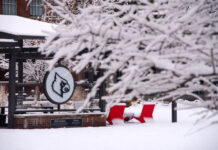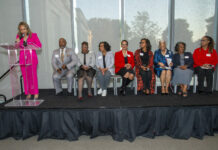
The University of Louisville has received $3 million to enhance its research infrastructure and help further groundbreaking work that can save and improve lives.
The new funding, a gift from the Jewish Heritage Fund (JHF), will go to support and strengthen UofL’s core research facilities — shared labs that provide researchers with access to advanced equipment, specialized scientific techniques and skilled personnel that can help accelerate discovery and innovation. Across UofL, researchers are using core facilities to develop everything from new diagnostics and treatments to advanced manufacturing of novel materials and devices.
“UofL is a hub for cutting-edge research, and these labs are the backbone of that work,” said Kim Schatzel, UofL’s president. “We are very grateful for JHF’s continued partnership and most recent gift, which will help grow these critical facilities and empower researchers to push the boundaries of knowledge and deliver high-impact results that benefit everyone.”
This gift marks a total of more than $40 million in combined funding and in-kind donations by JHF to UofL in a decade-long partnership focused on advancing health. At UofL, JHF’s investments have resulted in new medical breakthroughs, direct support for 52 researchers thus far and more than $165 million in new external research funding.
“We are proud to partner with UofL and leverage its biomedical expertise and strength as a Research-1 institution,” said Jeff Polson, JHF’s president and CEO. “Together, we have advanced adolescent health, funded groundbreaking research, and supported community partners to overcome obstacles and strive for new heights.”
Jon Klein, UofL’s interim executive vice president for research and innovation, said collaboration with community organizations is critical to UofL’s groundbreaking research. UofL is one of just 84 universities in the country to receive both the Research-1 and Community Engaged designations from the Carnegie Classification of Institutions of Higher Education. The latter recognizes institutions that work with community partners to exchange knowledge and resources for public benefit.
“UofL is a premier, community engaged research institution, and this partnership is an excellent example of what that means,” Klein said. “Great community partners like JHF are vital to UofL’s work to create and apply knowledge that improves lives.”





























